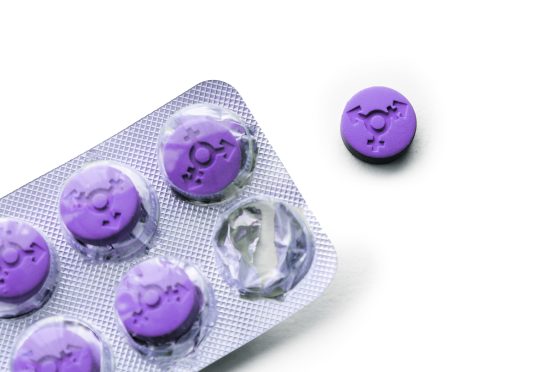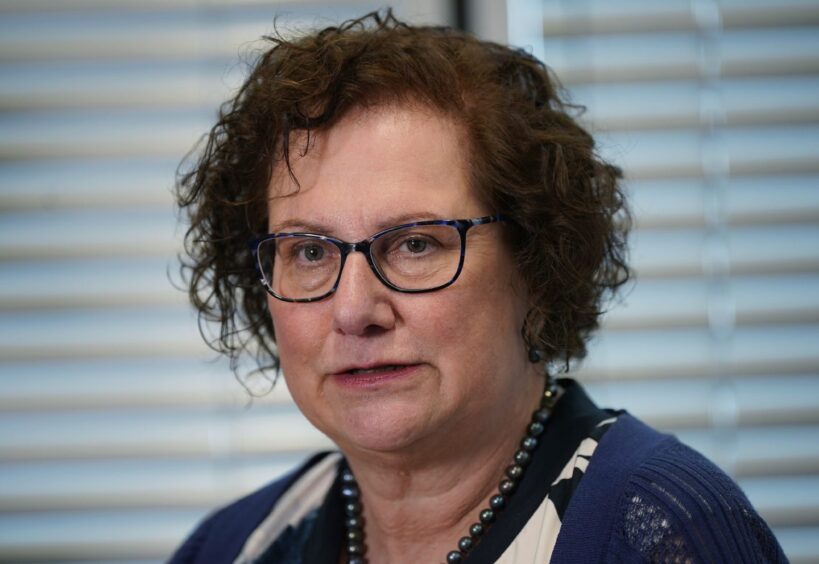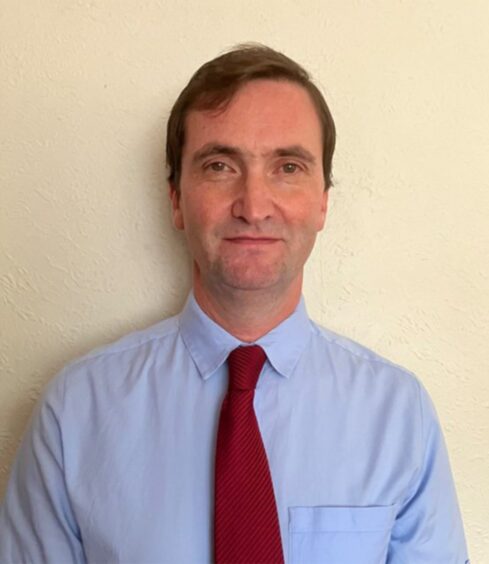
Scotland’s GPs are in revolt over pressure to prescribe gender-changing hormones.
They claim new national prescribing plans are pushing them to break their Hippocratic Oath of doing no harm because they know the powerful drugs cause devastating side effects. They warn prescribing them could leave GPs open to future damaging litigation.
Despite warnings in the excoriating report by England’s lead paediatrician Dr Hilary Cass that there is no robust evidence to support gender ideology claims, GPs say the Scottish government and their Healthcare Improvement Scotland are pushing proposals which will see them prescribing and managing patients once they have been discharged from specialist care.
One horrified GP said: “Despite the very clear findings of the Cass report, HIS are intent on pressuring us down a road many of us are deeply concerned about.
“The General Medical Council is very clear that if you prescribe based on the recommendation of another doctor or specialist, you are responsible for ensuring the prescription is needed, appropriate and within the limits of your competence.
“I share the concerns of many GPs in believing that transgender care should only be carried out by those with specialist skills. Most GPs do not have competence in this area as it is a speciality which not only lacks robust evidence, but the hormone therapy being used is ‘off licence’. That means medication is not licensed for the purpose it is being used.
“There are many GPs who won’t want to take on that huge responsibility and feel the service should be fully managed in secondary care. If there are GPs wishing to offer that service, specialist training and clinical governance must be offered.”
The medical governing body, the General Medical Council, insists doctors keep themselves informed about the medicines they prescribe, be able to recognise serious adverse effects, and ensure appropriate clinical monitoring is in place.
It states: “If you share responsibility for a patient’s care, you must be competent to exercise shared clinical responsibility.”
‘We’re being put in an impossible position’
The concerned GP said: “It is a huge problem because for many years now when patients are discharged from Gender Identity Clinics into GP care, there has been a failure to formally collect clinical monitoring data across some of the largest areas in Scotland.
“Because of this failure, how can GPs know the extent of the short- and long-term harm caused by these powerful drugs? GPs are responsible for any prescription we sign.
“We are liable if harm is caused by prescribing or by the inadequate long-term follow up of these medicines, such as the blood monitoring we know has not been done.
“We already know gender medications have extremely serious adverse effects. Now we are being asked to accept responsibility for what has been happening here in Scotland, including the very real possibility of future litigation when those harms become apparent.
“Despite the seriousness of the implications for GPs, there has been no acceptable full consultation between HIS and us.
“We are being pressurised to just accept shared care as a done deal.
“If we do, we face breaking our Hippocratic Oath. If we don’t, some GPs may fear action may be taken against them. We’re being put in an impossible position.”
Healthcare Improvement Scotland, which drives NHS policy, is currently developing gender identity standards.
The Scottish Government was slow to endorse the Cass report and its findings. In April, Scotland’s largest gender clinic, the Sandyford in Glasgow, finally followed the steps taken in England by announcing it will no longer issue powerful hormone treatments to new child patients. But that won’t affect the 1,000 self-referrals already on the clinic’s waiting list, including two under five years old.
The Post exclusively revealed there was an increase of over 1,400% in child referrals between 2013 and 2019, and, in 2021, 51 girls were referred for double mastectomies.
Another GP resigned from the British Medical Association after it announced earlier this month it plans to challenge the Cass report.
The Glasgow-based GP said: “Like many of my colleagues I’m dismayed that science has been trumped by the beliefs of a minority ideology. I was brought up in an era where evidence-based medicine supposedly harnesses the best science we can muster. If gender reassignment is personal or social, not medical, then how much should medical practitioners be expected to be involved?”
NICE, which provides guidance for doctors, found there was “insufficient evidence” for puberty blockers in 2021, and came to similar conclusions over gender-affirming hormones even before the Cass report was published.
The Glasgow GP said: “A study of retrospective data from the United States has shown a 12-fold increase in the risk of suicide or self-harm associated with gender affirmation procedures.”
‘GPs need support to provide quality care in this area’
The Royal College of General Practitioners and Scottish Chair Dr Chris Provan is unequivocal.
He said: “Transgender care is a highly specialised area involving the assessment by a multi-disciplinary team, and this is beyond the remit of GP practices. Specialist support and proper NHS services must be in place and with sufficient capacity to support demand. GPs worry about the mental health impact of the very long waiting list for specialist transgender care. As prescribers, GPs have a duty to do a full assessment, and there can be additional challenges when patients come from private providers, as it is difficult to know what level of assessment has already been made.
“It is the position of RCGP that prescribing bridging prescriptions for those on waiting lists should only be undertaken by GPs in a trusted partnership with specialists or by GPs have a particular interest or extended role in transgender care.
“GPs and their teams need support to provide quality care in this evolving area, alongside Protected Learning Time to stay informed on the growing evidence, terminology and models of care.”
HIS said the new national standards “do not state how services should be delivered at local or national level. This will be the responsibility of individual NHS boards”.
The Scottish Government said: “Cross hormone therapy for adult transgender patients is assessed at a gender identity clinic. It is then provided by a combination of healthcare professionals, including GPs.
“We welcome the work NHS Greater Glasgow and Clyde is doing on referral pathways into their adult and young people’s gender services – bringing them in line with the other gender identity clinics in Scotland. As a result, these services will no longer accept self-referrals and will require a referral from a clinician, for instance a GP, CAMHS or Adult Psychological Therapies practitioner to access the services.”

Enjoy the convenience of having The Sunday Post delivered as a digital ePaper straight to your smartphone, tablet or computer.
Subscribe for only £5.49 a month and enjoy all the benefits of the printed paper as a digital replica.
Subscribe © Yui Mok/PA Wire
© Yui Mok/PA Wire © SYSTEM
© SYSTEM